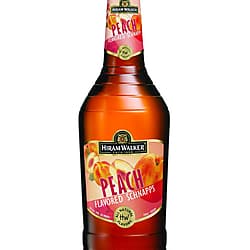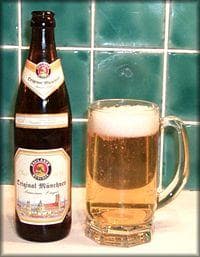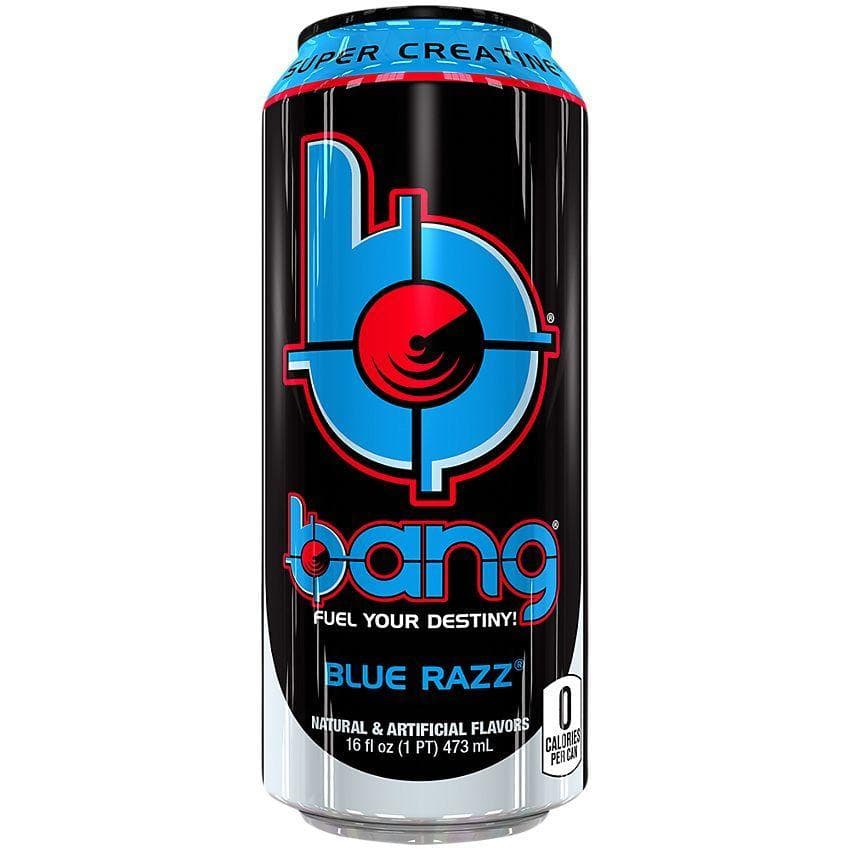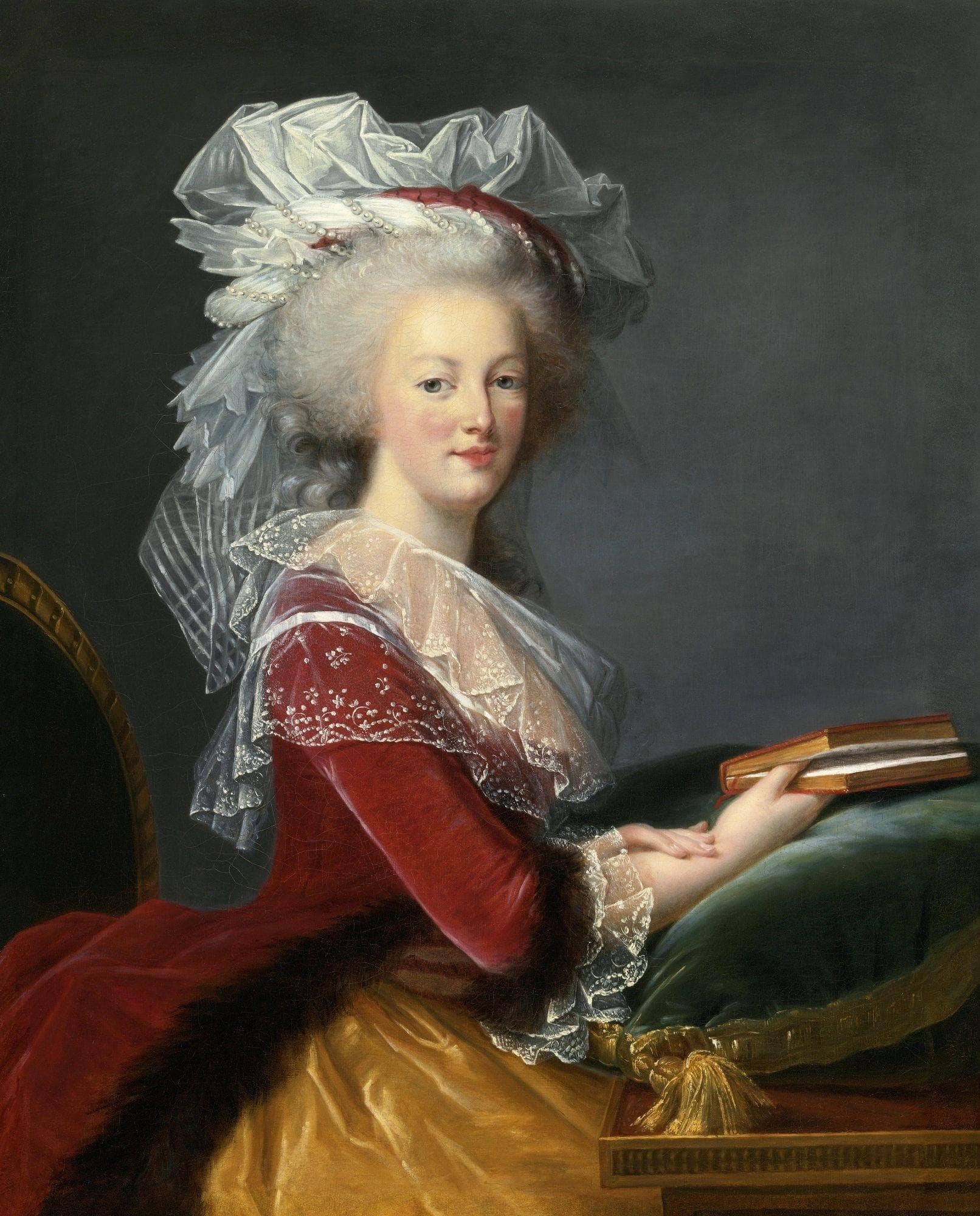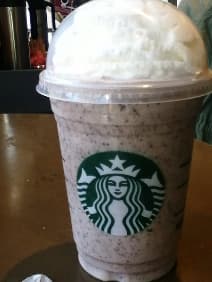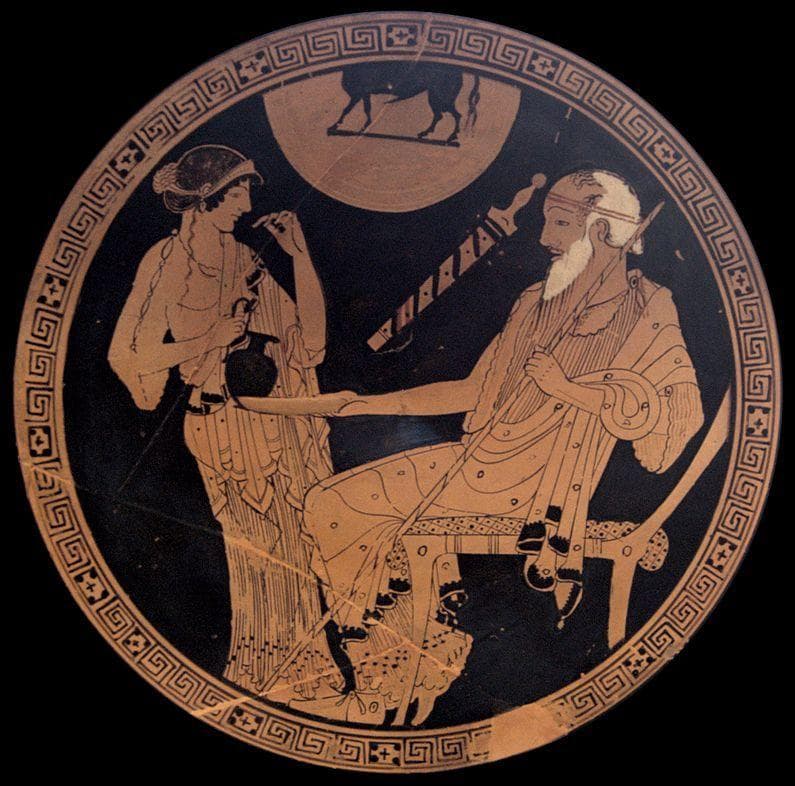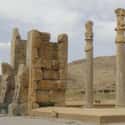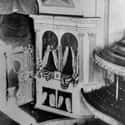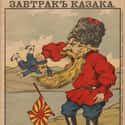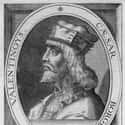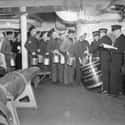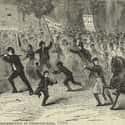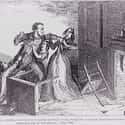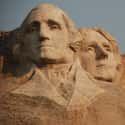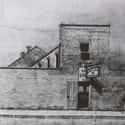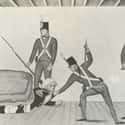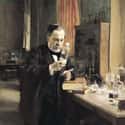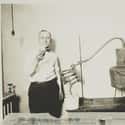-
(#1) Alexander the Great Sacked Persepolis in a Drunken Rage
Alexander the Great is well-known not just for his love of conquering but also for his love of alcohol. Alexander’s passion for booze came to a head in 330 BCE upon his arrival in Persepolis. After he and his men conquered the city, he resolved during a night of drunken debauchery to burn Persepolis to the ground. This was a strange, likely alcohol-induced decision, considering that the city now belonged to him. In those flames, future historians lost all access to massive amounts of knowledge about ancient Persepolis and Persia.
In a case of karmic retribution, a recent study claims that Alexander may have himself been snuffed out by a glass of toxic wine.
-
(#2) Abraham Lincoln's Bodyguard Left His Post at Ford's Theater for a Drink at the Saloon
On the night of Abraham Lincoln’s assassination, John Parker was assigned the job of protecting the President on his trip to Ford's Theater. After the President and his wife settled in, Parker accepted an invitation from Lincoln’s footman and coachman to go for a drink at the Star Saloon next door. We’ll never know for sure what would have happened if Parker declined that invitation.
Perhaps John Wilkes Booth would have even been able to charm his way past presidential security as a famous actor. However, at least one person blamed Parker for the death of the president: Mrs. Lincoln.
-
(#3) Russians Lost a War Because They Were Too Drunk
Despite attempts by Ireland, Germany, and France, no nation is more closely associated with a specific alcohol than Russia is with vodka. Russians put this to the test during the Russo-Japanese War, when they proved that they couldn't forgo their favorite libation long enough to win a war. Russian newspapers reported after the hostilities that soldiers were too drunk to fight and provided easy targets for Japanese forces.
In 1905, Russia accepted less than ideal treaty terms in a negotiation brokered by Theodore Roosevelt. Even Tsar Nicholas himself blamed alcohol for the country’s embarrassing performance. He banned alcohol in the lead-up to World War I in the hopes that it wouldn’t happen again. Spoiler alert: things didn't end well for the Tsar or for the alcohol ban, which ended in 1925.
-
(#4) Beer Helped Build the Pyramids
It may seem counterintuitive, but beer did, in fact, play a role in the successful construction of one of the most important engineering triumphs in human history. Beer was such a popular drink in Ancient Egypt that pyramid builders got beer as part of their subsistence wage. Each worker received 10 loaves of bread and a measure of beer for his part in the project.
This payment was actually standard throughout the entirety of the Egyptian Old Kingdom, from 2686 - 2181 BCE. Beer was the drink of the masses in Egypt.
-
(#5) The Borgias Maintained Their Power Thanks to Poisoned Wine
For a family obsessed with holding and keeping the Papal seat, the Borgias's methods were anything but moral. The Borgias were an Italian family who reigned during the Renaissance. The aristocratic clan counted two Popes among their ranks. More importantly, the Borgias are known as one of most power-hungry families in history. Their weapon of choice for dispatching enemies? Poison-laced wine, on enemies and subordinates alike.
In a poetic twist of fate, some historians believe that it was a Borgia-poisoned bottle of wine, brought to the table by accident, that ultimately took the life of the patriarch of the Borgias, Pope Alexander VI.
-
(#6) Rum Kept the World's Most Powerful Navy Happy and Healthy for 300 Years
It wasn’t just pirates who had a taste for rum on the high seas. For more than 300 years, rum served as the main fuel of the British Navy. Beginning with England’s acquisition of Jamaica in 1655, sailors received a pint of rum as their daily ration. Sailors made sure the rum wasn’t diluted by adding gunpowder and setting it on fire, giving us the origin of the term “proof.” Rum didn’t just keep sailors safe from low morale; it also kept them safe from scurvy. When the higher-ups deemed rum too strong for duty in its purest form, Admiral Edward Vernon invented “grog,” a mixture of rum, water, lemon juice, and brown sugar.
The vitamin C in the lemon juice actually helped fight scurvy, which gave the sailors more than enough reason to keep imbibing.
-
(#7) Beer Inspired the Agricultural Revolution and Basically Started Civilization
Beer enthusiasts everywhere will be happy to know that beer may have been the catalyst for civilization as we know it. According to historians, the original reason that ancient farmers began to grow barley more than 10,000 years ago was not to create bread (as originally believed) but to create beer.
This shift from hunter-gathering to farming marked the beginning of the agricultural revolution, a period that gifted modernity with little things like the wheel, irrigation, and the plow.
-
(#8) Without the Whiskey Rebellion, Political Parties as We Know Them Wouldn't Exist
The Whiskey Rebellion played an important part in the birth of the America that we know today. When thousands of colonists came together to protest a new tax on whiskey, the rebellion met the iron hand of the new US government, led by the commander-in-chief himself, George Washington. The break-up of the rebellion proved to colonists that the young government had the power to defend itself against uprisings and laid the groundwork for the prosecution of treason.
Perhaps more interestingly, the whiskey tax was one of the issues pushed by the anti-Federalists, a move that helped spawn the division of ideology that created America’s first separate political parties.
-
(#9) Christianity Was the Official Religion of Early Russia Partly Because It Allowed Drinking
When it comes to choosing a religion, it’s important to keep your priorities straight. Prince Vladimir of Kiev did just that when he selected Christianity as the state religion partially because it didn’t ban booze. According to the Primary Chronicle, a history of East Slavic tribes written in the 12th century, various religious leaders came to Vlad’s court to present their religions for his perusal.
His specific reason for rejecting Islam was that “Drinking is the joy of the Russes. We cannot exist without that pleasure.” He eventually settled on Christianity, which remains the most popular religion in Russia to this day.
-
(#10) The Temperance Movement Advanced Women's Rights
Looking back on history, we tend to regard temperance movements with scoffs and eye rolls. But at the very least, temperance organizations provided a training ground for many of the most famous feminists to hone their activism. The first wave of feminism was born out of these temperance movements, with many suffragist leaders like Susan B. Anthony cutting their teeth on the temperance cause.
It can be argued that movements like the temperance movement and the anti-slavery movement, both of which contained large numbers of female activists, taught these women how to organize. They took what they learned and ran with it, all the way to the vote and beyond.
-
(#11) George Washington and Other Early American Politicians Bought Votes with Booze
As a politician, it’s important to know what your constituents like. When it came to George Washington and his fellow Virginians, the answer was alcohol. Early in his career, Washington used all of his campaign funds to buy enough liquor to convince voters to elect him to the House of Burgesses in 1758. Perhaps if the American colonists didn’t have such a taste for the hard stuff, George would have lost his early election, faded into obscurity, and America would have missed out on electing one of it’s best presidents.
This practice of exchanging liquor for votes carried on all the way until the 18th Amendment banned alcohol in 1920. Until then, you were just as likely to see a barroom brawl as you were a ballot on Voting Day.
-
(#12) Wine Helped Scotland and France Build the Auld Alliance
In an effort to get out of the shadow of England, Scotland sought out France at the end of the 13th century to build the Auld Alliance. This partnership became one of the most important strategic alliances in Scotland’s history and wine helped make it happen. Wine figured heavily into the negotiation process, with France promising Scotland first pick of Bordeaux’s best wines.
With the alliance cemented, Scotsmen got top notch wine in exchange for aid to the French military, including relief at the Battle of Agincourt and assisting Joan of Arc in Orleans. The nations worked together for many years to suppress English expansion and to make England jealous of Scotland’s superior wine cellars.
-
(#13) Rum Bolstered the International Slave Trade
As much as alcohol contributed to history’s happy times, it also played a part in some of its darkest. After Colonial Americans learned how to make rum from molasses, rum distilleries became big business in New England. The West Indies overflowed with molasses as a result of the vast sugar plantations there. Both the West Indies and America used slaves to sustain their cash crops.
From these roots, a triangular trade system formed: New England exchanged rum and slaves in Africa, slave traders shipped slaves from Africa to the West Indies through the Middle Passage, and the West Indies exchanged molasses and slaves with the American Colonists. This dark chapter of rum history flourished until the American government abolished the slave trade in 1807.
-
(#14) Australia's Only Government Overthrow Happened with the Help of Rum
Throughout the annals of history, if there is one thing that is sure to cause discontent, it is depriving a nation of its alcohol. This was the case for colonial Australia, when Governor William Bligh’s repression of the rum trade in New South Wales helped cause a military uprising. In 1808, the New South Wales Corps, nicknamed the “Rum Corps,” invaded Government House, placed Bligh under arrest, and took control of the government for two whole years.
The suppression of rum was one piece of a larger puzzle in the conflict between Bligh and the soldiers, but it has come to symbolize the rebellion as a whole.
-
(#15) Louis Pasteur Studied Wine and Beer to Invent Pasteurization
Pasteurization has become synonymous with dairy products, but it was the harder stuff that pushed Louis Pasteur toward his most famous discovery. Pasteur’s original work as a chemist involved the study of fermentation and the souring of wine. It was Pasteur who proved that bacteria in liquids like beer and wine were the cause of spoilage.
To counteract it, he tested the process of boiling liquids and then cooling them, a process now known as pasteurization. He completed his first successful test in 1862 and the world has been a safer place thanks to alcohol ever since.
-
(#16) The Fight Over Alcohol Gave Us Everything Good and Bad About the Roaring '20s
The unintended consequences of prohibition ushered in some of the most romanticized figures of the 1920s: the bootlegger, the flapper, the gangster, the Untouchable Eliot Ness. When America went dry, the crime and chaos of the underground alcohol scene flourished. Social and sexual norms eased and people began to shed the stiff skin of the Victorian age.
As the Great Depression hit, politicians were forced to understand that the legalization of alcohol meant the taxation of alcohol.
New Random Displays Display All By Ranking
About This Tool
Alcohol is not only an important ingredient of edible wine but also an important material in the medical field. In ancient times, there were 3 main types of alcohol, beer made from grains, wine made from fruits such as grapes, and distilled spirits. It can be said that wine has existed since the beginning of human civilization. Therefore, wine is considered an important physical proof of human material culture. Alcohol has always played an important role in people's lives.
Do you want to know more about the history of alcohol? The random tool collates 16 times about alcohol profoundly changed history. You could use the tool to search for what you want to know.
Our data comes from Ranker, If you want to participate in the ranking of items displayed on this page, please click here.


